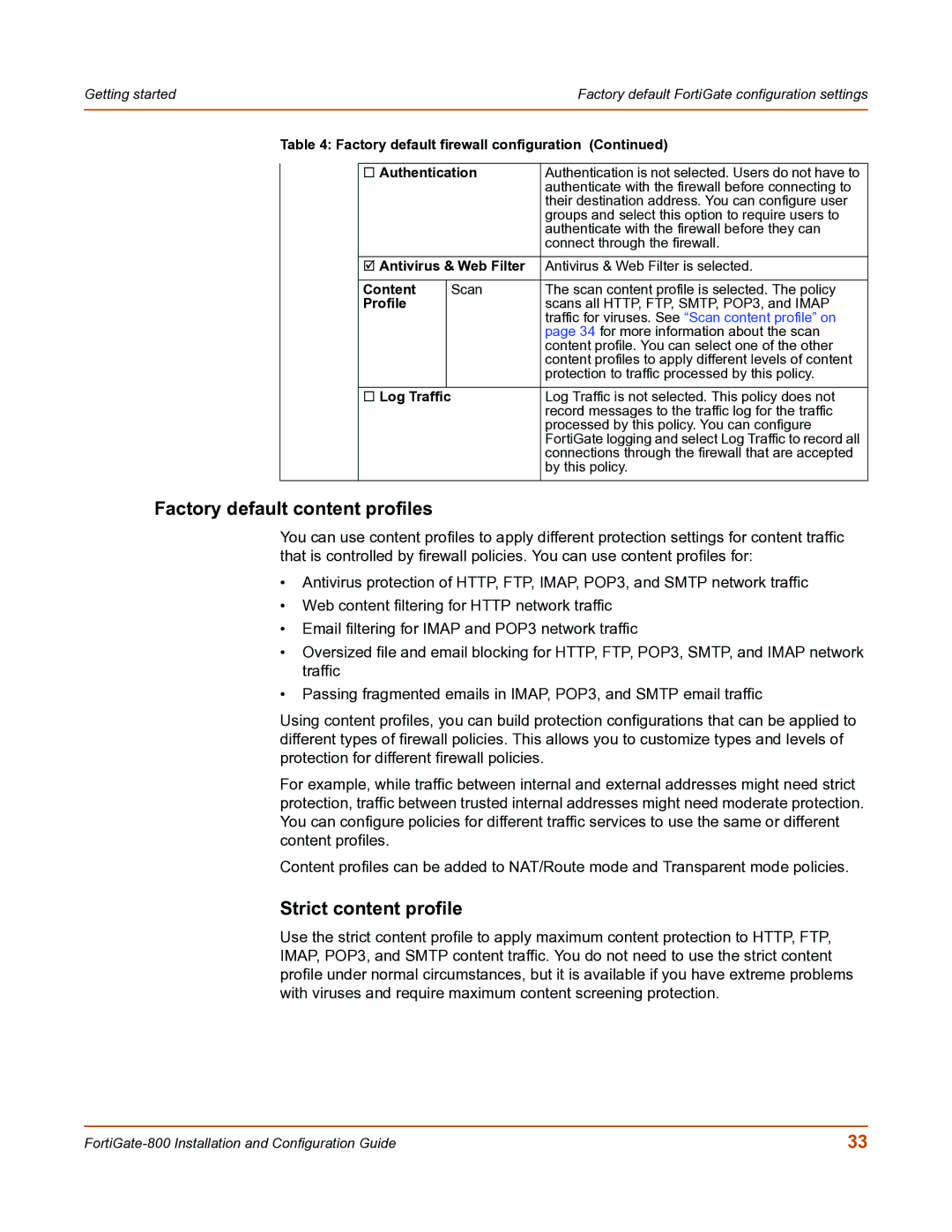Getting started | Factory default FortiGate configuration settings |
|
|
Table 4: Factory default firewall configuration (Continued)
| Authentication | Authentication is not selected. Users do not have to | |
|
|
| authenticate with the firewall before connecting to |
|
|
| their destination address. You can configure user |
|
|
| groups and select this option to require users to |
|
|
| authenticate with the firewall before they can |
|
|
| connect through the firewall. |
|
|
| |
| ; Antivirus & Web Filter | Antivirus & Web Filter is selected. | |
|
|
|
|
| Content | Scan | The scan content profile is selected. The policy |
| Profile |
| scans all HTTP, FTP, SMTP, POP3, and IMAP |
|
|
| traffic for viruses. See “Scan content profile” on |
|
|
| page 34 for more information about the scan |
|
|
| content profile. You can select one of the other |
|
|
| content profiles to apply different levels of content |
|
|
| protection to traffic processed by this policy. |
|
|
|
|
| Log Traffic |
| Log Traffic is not selected. This policy does not |
|
|
| record messages to the traffic log for the traffic |
|
|
| processed by this policy. You can configure |
|
|
| FortiGate logging and select Log Traffic to record all |
|
|
| connections through the firewall that are accepted |
|
|
| by this policy. |
|
|
|
|
Factory default content profiles
You can use content profiles to apply different protection settings for content traffic that is controlled by firewall policies. You can use content profiles for:
•Antivirus protection of HTTP, FTP, IMAP, POP3, and SMTP network traffic
•Web content filtering for HTTP network traffic
•Email filtering for IMAP and POP3 network traffic
•Oversized file and email blocking for HTTP, FTP, POP3, SMTP, and IMAP network traffic
•Passing fragmented emails in IMAP, POP3, and SMTP email traffic
Using content profiles, you can build protection configurations that can be applied to different types of firewall policies. This allows you to customize types and levels of protection for different firewall policies.
For example, while traffic between internal and external addresses might need strict protection, traffic between trusted internal addresses might need moderate protection. You can configure policies for different traffic services to use the same or different content profiles.
Content profiles can be added to NAT/Route mode and Transparent mode policies.
Strict content profile
Use the strict content profile to apply maximum content protection to HTTP, FTP, IMAP, POP3, and SMTP content traffic. You do not need to use the strict content profile under normal circumstances, but it is available if you have extreme problems with viruses and require maximum content screening protection.
33 |
